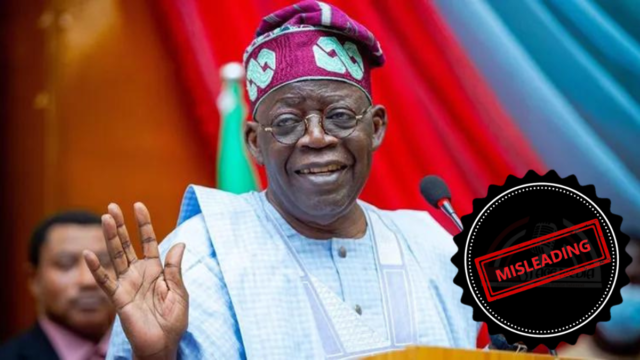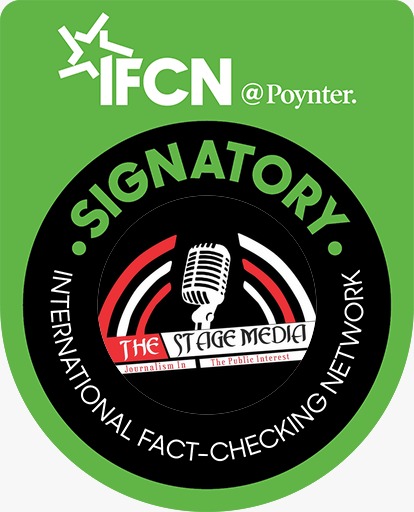
Claim: Tinubu left the governorship in 2007; he was out of active politics for 16 years until he won the presidency this year (2023).
Source: Taa Wongbe, former Senatorial Candidate, Nimba County.
Verdict: Misleading
Full Text: Taa Wongbe, a 2020 Nimba County Senatorial candidate took to his Facebook page with the claim that Bola Tinubu, Nigeria’s President left active politics for 16 years before his election in February 2023.
Tinubu, a “political godfather” known for his strategic acumen and power, won a close race to succeed Muhammadu Buhari as Nigeria’s next president.
In his post, Wongbe compared Unity Party Candidate, former Vice President Joseph Boakai to Tinubu, the President of Nigeria.
Verification 1992 saw Tinubu make his first foray into politics when he was elected as a senator for the now-defunct Social Democratic Party (SDP).
He ran for governor of Lagos State once more in 1999, this time on the platform of the Alliance for Democracy (AD), a group that has its roots in the late philosopher Obafemi Awolowo. In 1999, AD was the most powerful party in the Southwest.
He founded the Action Congress political party in 2006. As his successor, he chose Raji Fashola, his former chief of staff. His new party kept the state.
During this time, Tinubu was involved in a protracted conflict with the Olusegun Obasanjo-led federal government.
He expanded his party in several states in 2007. In Osun, he supported his Commissioner of Works, Rauf Aregbesola, while in Ekiti, he supported his National Democratic Coalition (NADECO) pal, Kayode Fayemi.
Both Rauf and Fayemi were defeated in the election but were later declared winners by the Court of Appeal.
Similarly, Adams Oshiomhole won the Edo State election in court.
By 2011, the ACN had completed its takeover of the South-West and Edo States and gained an ally in Ondo State.
Aside from the sub-regions, he supported Atiku Abubakar and Nuhu Ribadu for the presidency in 2007 and 2011, respectively. Both men ran on the platform of Tinubu’s party but were defeated.
The All Nigerian Peoples Party (ANPP), the Congress for Progressive Change (CPC), and a section of the All Progressives Grand Alliance (APGA) merged into the APC in 2013. Tinubu supported Buhari as the party’s presidential candidate in 2014. He also played an important role in his party’s election victory.
His bid for vice president was cut short in 2015 when the party was afraid of a Muslim/Muslim ticket; instead, he nominated Yemi Osinbajo, his former attorney general and commissioner for justice, as vice president.
After meeting with Buhari in January 2022, he declared his intention to run for president. During the APC convention primaries in June, he received 1,271 votes, defeating several other candidates, including Vice President Yemi Osinbajo. He defeated 11 other candidates after nine others stepped down in his favour.
Conclusion: Tinubu’s election came after 16 years as an opposition leader and nearly eight years as the ruling All Progressives Congress (APC) national leader. Therefore, the claim by the former Nimba County senatorial Candidate, Taa Wongbe is misleading.




